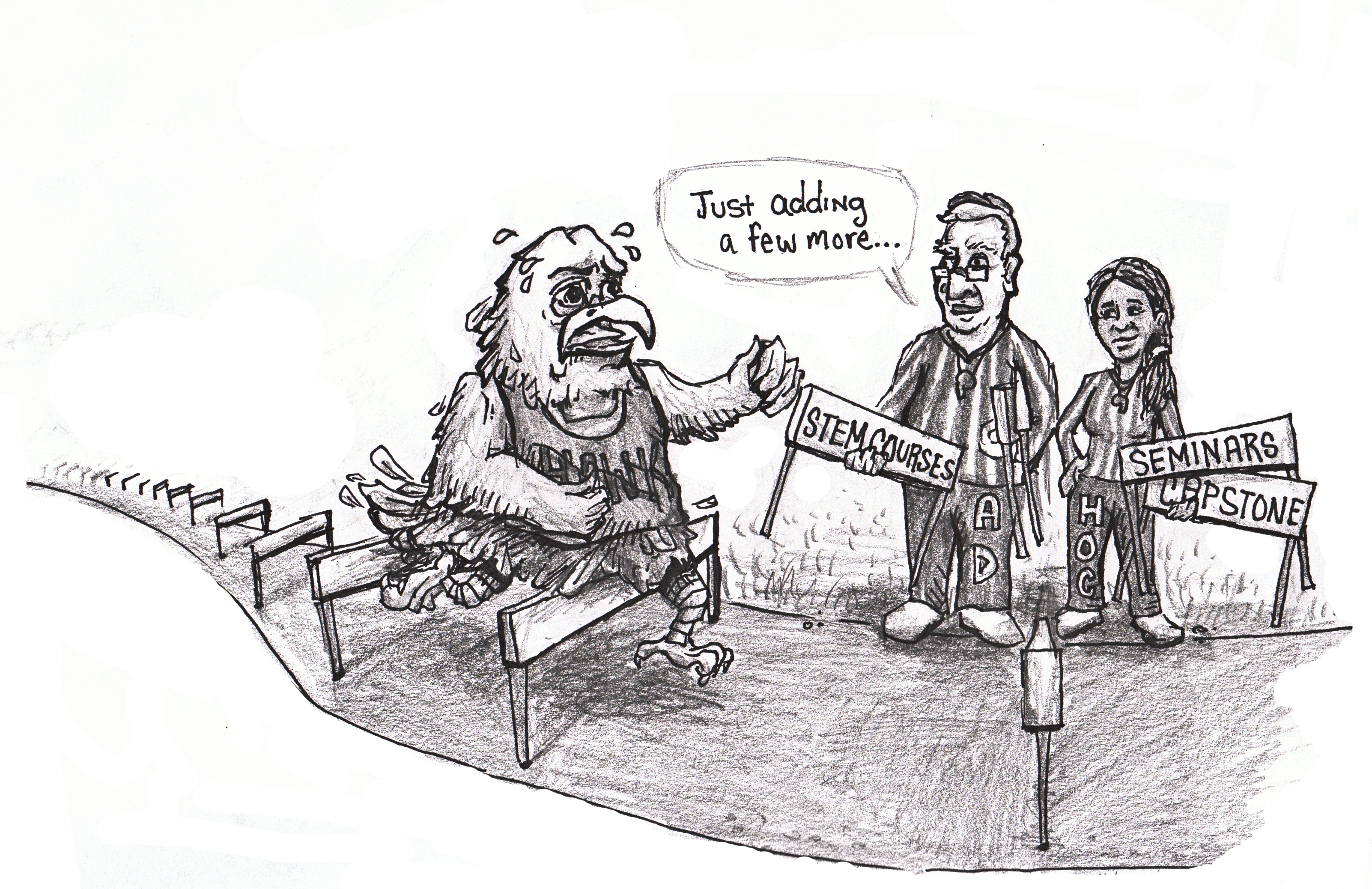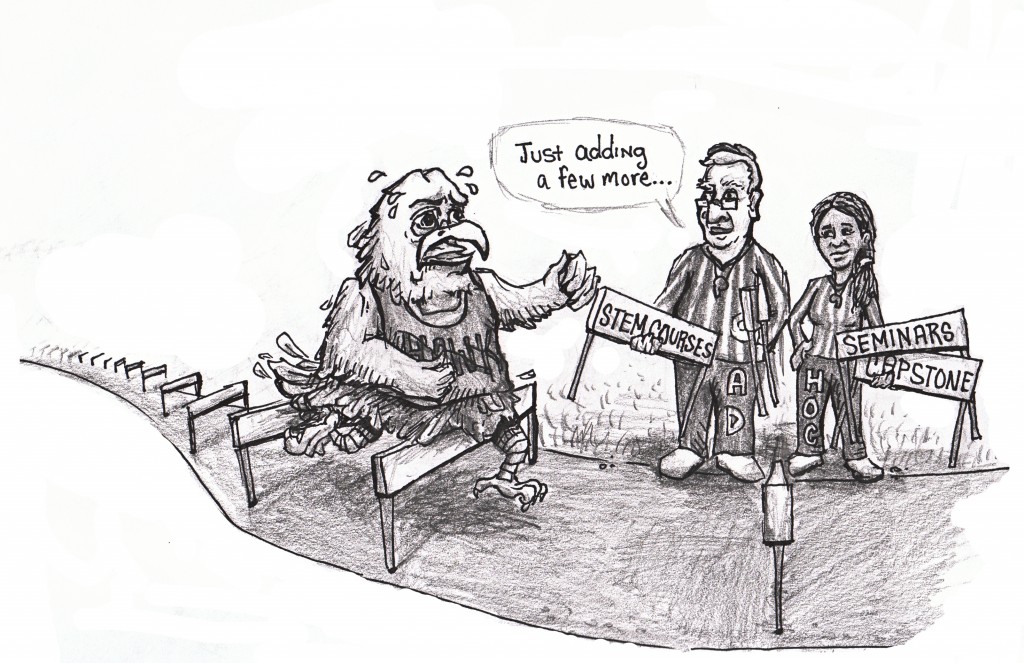
 Recent proposals by the Liberal Ad Hoc Committee to change undergraduate requirements have us at The New Paltz Oracle both impressed by their forward-thinking attitude and concerned with the feasibility of enacting such change all at once.
Recent proposals by the Liberal Ad Hoc Committee to change undergraduate requirements have us at The New Paltz Oracle both impressed by their forward-thinking attitude and concerned with the feasibility of enacting such change all at once.
The committee’s ideas are bold: they did not hesitate to think of new courses to add to a student’s requirements at SUNY New Paltz. While certain courses could offer a more well-rounded experience at SUNY New Paltz, other additions could delay graduation rates.
One proposal that could be a positive change requires first-year students to take a seminar. Committee members said they hope the course would foster an understanding in ethics, communication and community. We support this approach as it’s important for students to know how to carry themselves, whether they are applying for internships, going on job interviews or handling other workplace situations.
The portion of this proposal highlighting ethical thinking is equally important to the communication aspect of the idea. It almost goes without saying that as we grow into true adults, we should do so with an empathetic attitude.
However, we urge administrators to carefully consider how to organize such a seminar to avoid redundancy. First-year students do not need another class similar to the one attached to the First Year Initiative (FYI). If they wanted to be in FYI, they would have signed up for it. A seminar should be distinctly different in curriculum and class discussion; otherwise, the college would be wasting student and faculty time.
Other proposals could prove to be redundant — or it would seem so, when looking at the language of them at this point. The committee suggests that in addition to a math and two natural science courses students need to take to fulfill graduation requirements, students should complete another two STEM (Science, Technology, Engineering and Mathematics) enhanced courses.
This idea should not surprise anyone; the job market demands people with experience in these disciplines, so it would be advantageous for students to become better educated in such fields. The problem, however, is that this college is not fully equipped to handle this sort of change.
The proposal is fairly vague at this point and does not specify how STEM course will differ from natural sciences. Can students “double up” on requirements by taking one course? Will new courses be created? It is unclear.
One thing is for certain: students have trouble getting into science courses now. What would happen if they needed to take four courses in this academic unit, a comparatively smaller school in terms of the number of courses offered and the faculty teaching in this area? New faculty would need to be hired to teach new courses or more sections of others if anyone on this commmittee wants students to graduate in six years.
However, SUNY New Paltz has recently come off a $6.3 million budget deficit. The release of adjuncts has left some current faculty overworked, and they need new people to relieve the load. Although the college is looking at a surplus in this fiscal year, there are not enough funds to hire the faculty needed to teach so many courses in one academic unit.
Furthermore, additional courses puts an unnecessary strain on the people who matter most on this campus — students. They will now have to pack their schedules with a more-than-15-credit semester, and while summer sessions could become mandatory just to finish in a four-year timeframe. If these demands aren’t met, then the six-year graduation rate will become more commonplace.
We suggest that the committee clean up the language of the proposals and explain to the campus community in depth what these changes mean.
Another proposal from the committee also requests majors to incorporate a fieldwork or capstone project in their program. If such a requirement is going to be enforced, we feel the committee should explore possible partnerships with the town, village or other external, off-campus resources. This would ease the process of what could become a daunting requirement — finding a placement — easier, therefore allowing students to enjoy their fieldwork or research.
Members of the Liberal Ad Hoc Committee, in a campus wide email, have invited students to present their own ideas and to gauge their feedback on today 11 a.m. to 1 p.m. in Student Union 409. We encourage students to attend this meeting and express any concerns or questions they may have about these new changes, and we also push the committee to be transparent future changes dealing with the undergraduate education experience.
